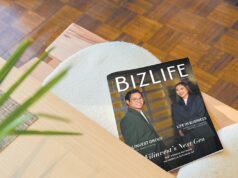PASS the Bangsamoro law: Check.
Next on the government’s to-do list: Ensure ratification.
 “The establishment of the Bangsamoro Autonomous Region and the determination of its territorial jurisdiction shall take effect upon ratification of this Organic Law by majority of the votes cast in a plebiscite…,” reads Section 1, Article 15 of the Bangsamoro Organic Law (BOL) that is marked as signed by President Rodrigo R. Duterte on July 27, 2018.
“The establishment of the Bangsamoro Autonomous Region and the determination of its territorial jurisdiction shall take effect upon ratification of this Organic Law by majority of the votes cast in a plebiscite…,” reads Section 1, Article 15 of the Bangsamoro Organic Law (BOL) that is marked as signed by President Rodrigo R. Duterte on July 27, 2018.
There is no categorical provision in the 109-page BOL as to an alternative plan should a ‘No’ vote win in the plebiscite, which is scheduled on two dates: Jan. 21 within the Autonomous Region in Muslim Mindanao (ARMM), Cotabato City, and Isabela City; and Feb. 6 for Lanao del Norte and Cotabato, including towns and barangays with approved petitions to join the Bangsamoro ARMM (BARMM).
“Mag-ampo lang ta nga makalusot. Og dili, laing problema na pud na. (Let’s just pray that it will manage to get passed. If not, then that will be another problem),” Mr. Duterte said in a speech last Sept. 21 as he visited landslide victims in Naga City, Cebu.
The government is not exactly relying on divine intervention as a strategy, with representatives of the Office of the Presidential Adviser on the Peace Process (OPAPP), along with the Bangsamoro Transition Commission (BTC) and the Moro Islamic Liberation Front (MILF), having been busy holding forums in different areas to explain the BOL — and ensure that it gets the people’s approval.
Various non-government organizations as well as the Moro National Liberation Front (MNLF), which was the first to sign a peace deal with the government that paved the way for the creation of the Autonomous Region in Muslim Mindanao (ARMM), have also been making the rounds to explain and rally support for the BOL.
“It is very important for us to know the intricacies of the law to reach better understanding,” said Undersecretary Nabil A. Tan, chair of the government Implementing Peace Panel for Bangsamoro Peace Accords, during one of the forums held in Sulu, Jolo on Nov. 18.
Amina Rasul-Bernardo, president of the nonprofit policy and advocacy organization Philippine Center for Islam and Democracy (PCID), said the prevailing concern is not so much failing a ratification, but facing another stumbling block in the goal of strengthening and expanding the Bangsamoro region.
“While we are now looking at a plebiscite to expand the current region, and to have a stronger region of autonomy, what we worry about is that the national climate might negatively impact the voters who are outside the ARMM,” said Ms. Rasul in a Nov. 19 interview with BusinessWorld in Davao City, referring to economic issues such as inflation and the continued martial law imposition in the entire Mindanao.
“In the ARMM, we are also hearing that there are some governors who are not in favor, for example the Sulu governor who filed a case in the Supreme Court. I am confident that there is nothing unconstitutional about the BOL and that this petition will not prosper. However, internally, a campaign has to be mounted to make sure that the current ARMM remains together, that there is no diminution,” she added.
At the OPAPP forum in Sulu, Nestor Ukkoh, municipal council secretary of Jolo who represented Mayor Kerkhar Tan, expressed their appreciation of the government’s campaign.
“In order for us to have sound judgment of the BOL, there’s a need for us to understand the law, to increase the awareness and address misconceptions about the law,” he said.
ARMM Gov. Mujiv S. Hataman, meanwhile, lambasted the legal move by Sulu Gov. Abdusakar A. Tan II as politically-motivated.
“It is such a shame that it is a Moro who seeks to spoil this process all over again. We cannot allow the personal interests or anyone—especially not a Moro—to again sow discord where we so clearly need peace. We cannot allow the short-sightedness that is the politics of patronage to again wreck the progress we have made on the road to a lasting peace,” Mr. Hataman said in an Oct. 31 statement.
“We are confident that the Bangsamoro Organic Law will stand well under scrutiny and it will become the strong foundation of the peace we have been building for so long. Moros are people of peace and peace will win in the end,” he added.
The case, which questions the constitutionality of the BOL and seeks a temporary restraining order on its implementation, is pending before the country’s highest court.
TURNOVER
Meanwhile, the ARMM government, confident of the BOL’s approval, is prepared for the turnover to the Bangsamoro Transition Authority (BTA), which will be composed of 80 multi-sector representatives to be appointed by the President.
Under Article 16 of the BOL, the elected ARMM officials “shall automatically become members” of the BTC until June 30, 2019.
“ARMM has made a remarkable turnaround to become a responsive, efficient, and effective government,” said ARMM Vice- Governor Haroun Al-Rashid Lucman during the region’s 29th, and what they celebrated as the last, anniversary event last Nov. 19.
Mr. Lucman said this year’s festivities were about “standing proud in leaving behind an ARMM” that has been “previously stigmatized as a failed experiment.”
Mr. Hataman, who is running in the May 2019 midterm elections as representative of the lone district of his hometown Basilan, is preparing for what he tags as his “last” state of the region report on Dec. 18.
ECONOMIC OPPORTUNITIES
ARMM Regional Board of Investments (BoI) chair Ishak V. Mastura said the BOL, which provides broader political and economic autonomy as well as a larger territory, will open more opportunities, particularly towards agro-industrial development.
“This is the thrust of the (ARMM) economy. What we really need is to upgrade the production as well as processing, and to go into other businesses like manufacturing and garments trading,” Mr. Mastura said in an interview with BusinessWorld in Davao City on the sidelines of a PCID forum on Transparency and Accountability in the Extractive Sector Under the Bangsamoro Organic Law.
He noted that the ARMM government and the Philippine Business for Social Progress (PBSP) has completed a guidebook on investing in ARMM, entitled Brokering Business and Investments in the Bangsamoro.
The guidebook, he said, uses the business sustainability framework with focus on community engagement.
He cited the success story of Unifrutti Philippines, which now has around 3,000 hectares of plantations within the ARMM, including former rebel strongholds.
“It’s not just the plantation workers, but the community surrounding it were given the benefit of the investment that was put up there,” Mr. Mastura said.
The ARMM-BoI head also pointed out the need to establish economic zones, such as in the island province of Tawi-Tawi, where government procedures and public services can be more easily streamlined for investors.
“I hope they (Tawi-Tawi) can comply and we can declare it and maybe they can already build their own infrastructure and attract investors in the area for their ecozone,” he said.
ISLAMIC BANKING
Another key factor in attracting external investors into what would become the Bangsamoro ARMM (BARMM), along with supporting the growth of local entrepreneurs, is the passage of the Islamic banking law.
Mindanao Development Authority (MinDA) Deputy Executive Director Romeo M. Montenegro said institutionalizing Islamic funding mechanisms will provide new financial windows, especially in conflict-affected areas not just in the BARMM but in Mindanao as a whole.
“MinDA has been sounding this off many times, as conventional banking system is risk averse to Mindanao, particularly in funding big ticket projects in Muslim areas,” Mr. Montenegro told BusinessWorld.
He noted the government’s plan to include Sukuk bonds, or bonds that comply with Islamic rules, in the banking system.
Islamic banking does not allow the imposition of interests, but lenders and borrowers can enter into joint venture mechanisms that would give the former an opportunity to earn from the financial outlay.
These bonds, Mr. Montenegro said, will provide a window for the entry of funding from key Middle East countries like Saudi Arabia, Qatar and the United Arab Emirates.
Budget and Management Secretary Benjamin E. Diokno announced in mid-Nov. that the government plans to float Shari’ah-compliant securities next year if a legal framework is established by Congress.
The House of Representatives has approved on final reading Bill 8281, An Act Providing for the Regulation and Organization of Islamic Banks, while the counterpart Senate Bill No. 668, the Philippine Islamic Financing Act , is pending. Senator Sherwin T. Gatchalian also filed on Nov. 21 Senate Bill No. 2105, which seeks to establish a regulatory framework for the development of Islamic banks in the country.
“I see no problem with HB 8281 getting merged with SB 668. The two bills complement each other and can be merged with ease,” Leyte 2nd District Rep. Henry C. Ong, chair of the House committee on banks and financial intermediaries, said in a statement on Nov. 22.
“Parallel to that (passage of the law) is the laying of more groundwork for a Philippines’ Islamic banking roadshow in Malaysia, Indonesia, Singapore, Saudi Arabia, United Arab Emirates, Qatar, and Morocco, to name a few prospects,” Mr. Ong said.
Section 32 of the BOL’s Article 13, covering Regional Economy and Patrimony, provides that the “Bangsamoro Government and the Bangko Sentral ng Pilipinas (BSP), the Department of Finance, and the National Commission on Muslim Filipinos shall jointly promote the development of an Islamic banking and finance system, to include, among others, the establishment of a Shari’ah-compliant financial institutions.”
The BSP is tasked with determining the “type of organizational structure to be created and its composition.”
EXTREMISM
Lawyer Benedicto R. Bacani, executive director of the Cotabato City-based Institute for Autonomy and Governance, said the peace processes with both the MNLF and the MILF have “raised national consciousness on the history of Mindanao and the Moro people and the loss of sovereignty, land and identity due to colonization.”
In a speech on the “Dynamics Of Poverty, Politics And Peace: Mindanao And Beyond” delivered at the 4th Mindanao Peace Studies Conference on November 21 in Butuan City, Mr. Bacani further said that the peace process with the MILF, the cornerstone for the BOL, “is indeed more comprehensive in recognizing the root causes” of poverty and unrest in Mindanao along with the “contemporary modes of addressing them.”
He warned, however, that “structural violence that breeds conflicts and unpeace can only be addressed in an environment where the work for social justice is thriving and social justice is being pursued at all costs.”
Ms. Rasul also said that “violent extremism” remains one of the biggest dangers confronting the region, which the BOL could help nip with the institutional changes that its provisions will establish.
“All these can only happen if the Duterte administration remains firm in its support of the new region of autonomy and the plebiscite,” she said.
MARAWI
One of the most crucial points where that support needs to be delivered is in war-torn Marawi City.
The Conflict Alert 2018 report by International Alert Philippines opens by describing 2017 as “a turning point in the magnitude of violent conflict in the Bangsamoro, amplified by the astonishing increase in conflict deaths due to the war in Marawi City and other places in Mindanao.”
“Fewer incidents produced deadlier results in contrast to previous years. The question is whether this sort of outcome will persist in the future,” it said.
At the Marawi stop of the OPAPP series of BOL forums on Nov. 24, which was undertaken in partnership with the MNLF, Commissioner Datu Omar Yasser C. Sema of the BTC stressed that participating in the BOL plebiscite will serve as the Bangsamoro people’s “new weapon” for their aspirations towards peace and self-determination. — Marifi S. Jara with Carmelito Q. Francisco and Maya M. Padillo
Where will the Bangsamoro plebiscite be held?
Autonomous Region in Muslim Mindanao
Provinces of Sulu, Tawi-Tawi, Basilan (except Isabela City), Maguindanao, and Lanao del Norte
Lanao del Norte province
The municipalities of Baloi, Munai, Nunungan, Panta, Tagoloan and Tangkal
Cotabato province:
The 39 barangays in the towns of Aleosan (3 barangays), Carmen (2), Kabacan (3), Midsayap (12), Pigkawayan (28), and Pikit (11) that voted for inclusion in the ARMM during the 2001 plebiscite.
Cotabato City, an independent component city currently under the SOCCSKSARGEN (South Cotabato-Cotabato-Sultan Kudarat-Sarangani-General Santos City) Region
Isabela City in Basilan
The Commission on Elections said that as of Nov. 27, it is reviewing more than 50 petitions filed for inclusion. The approved list is targeted for release before the end of 2018.



